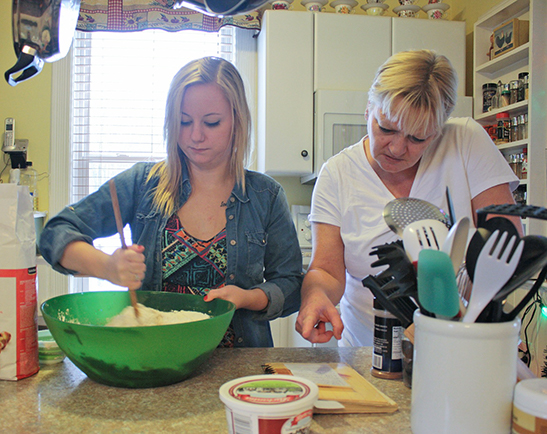
Looking for some ways to make a difference in a teen’s life?
Are you noticing changes in attitude or behavior?
Are you concerned for a teenager’s well-being?
The Department of Family Services has a few suggestions for ways that adults can connect with and encourage teenagers:
 Visit the Parenting Education Programs website for tips and resources to help you connect with your teen, and attend a parent café or a parenting education class, now enrolling for the spring and summer. More than 81% of parents who completed a class with the Parenting Education Programs demonstrated improved parenting and child-rearing attitudes with their children.
Visit the Parenting Education Programs website for tips and resources to help you connect with your teen, and attend a parent café or a parenting education class, now enrolling for the spring and summer. More than 81% of parents who completed a class with the Parenting Education Programs demonstrated improved parenting and child-rearing attitudes with their children.- During a stressful time, teens benefit from eating healthy meals, getting adequate sleep, and exercising regularly. Help your teen to keep a consistent sleep schedule. It will support a positive outlook and enable them to fulfill their responsibilities.
- Be an engaged dad – 85% of fathers who graduated from our Dads Parenting Group since 2018 have increased or maintained positive father involvement. Check out the Pocket Dad videos for tips building a strong relationship with your teen and their friends.
 Even in the best of times, teens face disappointments. Let them feel what they feel, hear them out, sympathize and don’t minimize their feelings. Do reassure them of their ability to overcome their circumstances.
Even in the best of times, teens face disappointments. Let them feel what they feel, hear them out, sympathize and don’t minimize their feelings. Do reassure them of their ability to overcome their circumstances.- Know the signs of child abuse and neglect, and if you see something, say something. If you're concerned about a child's well-being; want to report or discuss a possible abuse or neglect situation; or want advice, counseling, resources or help, please call the Child Protective Services Hotline at 703-324-7400, TTY 711.
- Mentor or tutor a child in your family, neighborhood, or community. Teens need positive adults that they can trust to listen to them. Be available and be open to hearing a teen’s stories and encouraging them – both in their times of success and failure.
- Healthy habits are particularly important for young people who may be struggling with anxiety or depression. Help teenagers create a realistic schedule for getting work done in defined periods, building in breaks and times for socializing, exercising and entertainment to help them find balance.
 Donate time, goods or money to an organization supporting children and families such as Volunteer and Partner Services.
Donate time, goods or money to an organization supporting children and families such as Volunteer and Partner Services.- Wondering what to do if you think your child might have a mental health concern? The Fairfax-Falls Church Community Services Board offers some advice including starting with how to talk with your child to find out how they are doing, what to listen for, where to go for help, and online resources to get started.
- The Parent Support Line is a great resource for parents and caregivers of children. Staff can help with parenting advice, support, and tips to help navigate emotional and relational parenting issues. Language support is available. Call 703-324-7720 or email BuildingStrongerFamilies@fairfaxcounty.gov, Monday-Friday, 8 a.m.-4:30 p.m.
 Fortunately, the trauma of child abuse and neglect is preventable. Supportive programs that seek to address known risk factors help to prevent child abuse and neglect before it occurs. Healthy relationships and environments act as a buffer against adverse experiences and are necessary to ensure the long-term physical and emotional well-being of children.
Fortunately, the trauma of child abuse and neglect is preventable. Supportive programs that seek to address known risk factors help to prevent child abuse and neglect before it occurs. Healthy relationships and environments act as a buffer against adverse experiences and are necessary to ensure the long-term physical and emotional well-being of children.
As a result of effective strategies and services within county agencies that are focused on the prevention of child abuse and neglect, many county residents are already playing a role in preventing child abuse and strengthening families. Through these strategies, you can make a difference too!
(return to Child Abuse Prevention Month)

